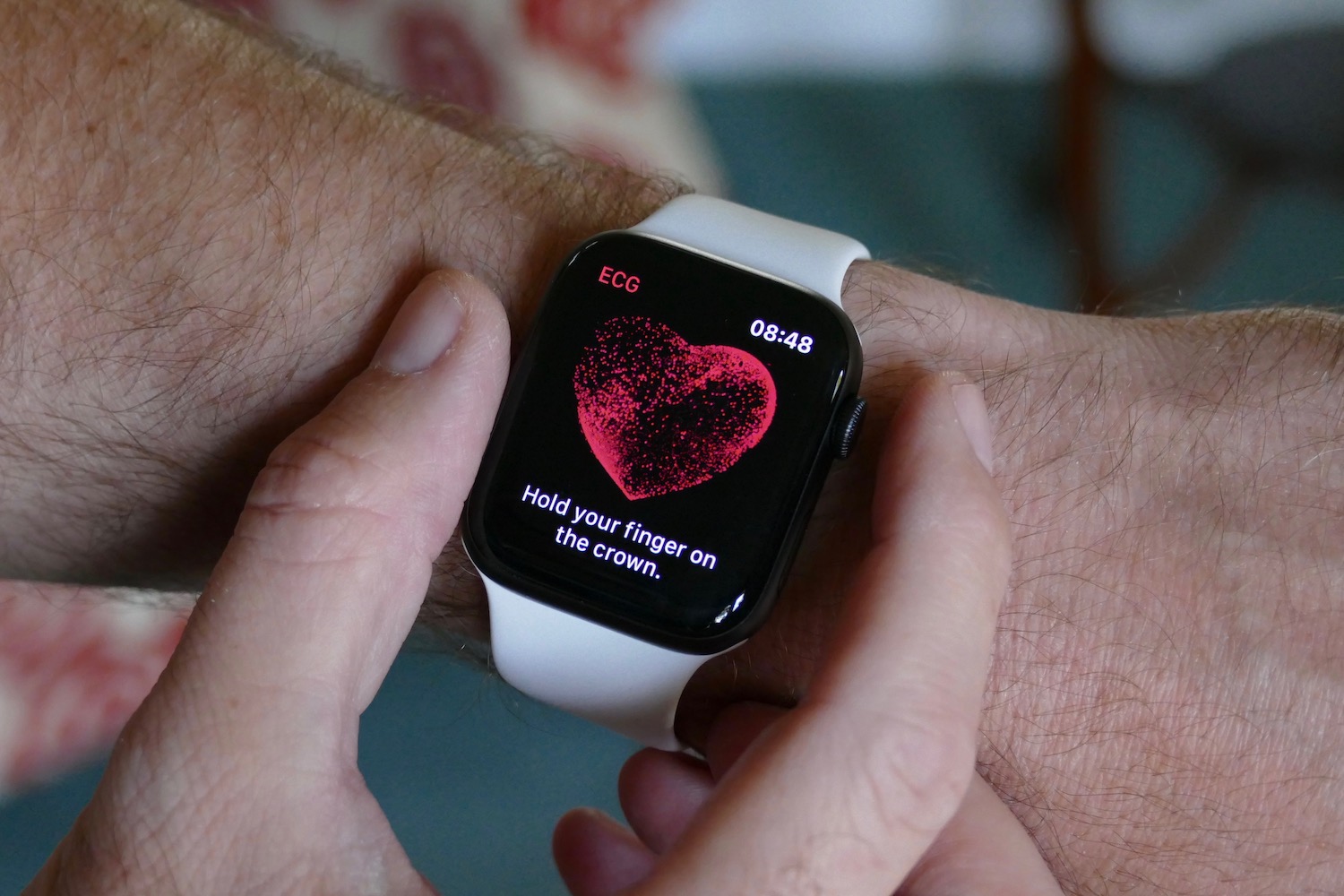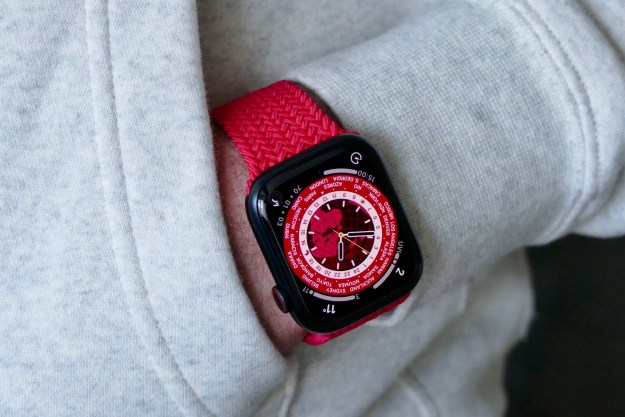Apple wants to know if its Apple Watch can reduce the risk of stroke by detecting early signs of atrial fibrillation (AFib). To help find out, the company announced a partnership with Johnson & Johnson on Tuesday to conduct a three-year stroke study.
Apple and Johnson & Johnson are seeking eligible adults in the U.S. ages 65 and older to participate in the study, called Heartline. Participants would download the Heartline Study app on their iPhones, along with an electrocardiogram (ECG) app, to see if the Apple Watch can successfully detect irregular heart rhythms.
“Heartline is a study that has the potential to fundamentally change our understanding of how digital health tools, like the ECG app and irregular rhythm notification feature on Apple Watch, could lead to earlier detection of AFib, helping patients understand and directly engage in their heart health, prompting potentially lifesaving conversations with their doctors, and improving health outcomes,” said Dr. C. Michael Gibson, co-chair of the Heartline executive committee and professor of medicine at Harvard Medical School, in a press release.

The goal of the study is to see if the Apple Watch can better detect early signs of AFib, which is the leading cause of stroke, but doesn’t always show symptoms. According to a 2017 study, 30% of people don’t know they have AFib until suffering a severe cardiovascular event, such as a stroke.
Participants of the study will get heart health tips, as well as surveys and questionnaires to fill out, each week during the study. You’ll need an iPhone to participate, but you don’t need to own an Apple Watch. Apple will give participants a discount on the purchase of an Apple Watch or it can loan one out to those involved in the study.
Apple also has other health studies in the works, including a hearing study that analyzes how daily sound exposure will impact your long-term hearing health. There’s also a women’s health study that looks at menstrual cycles and mensuration tracking, and a heart and movement study to better detect early signs of heart disease.
More than 400,000 people participated in Apple’s original heart study that monitored irregular heart rates on the Apple Watch. The study was published in November in the New England Journal of Medicine and revealed that a little over 2,000 people received a notification about an irregular pulse.
Editors' Recommendations
- Apple is done with the $17,000 gold Apple Watch Edition
- Hermès offers new range of non-leather – and leather – bands for Apple Watch
- Apple may not resurrect the 12-inch MacBook after all
- Apple Watch Series 3 could be discontinued later this year
- Apple Mac Studio cuts render time in half thanks to M1 Ultra




